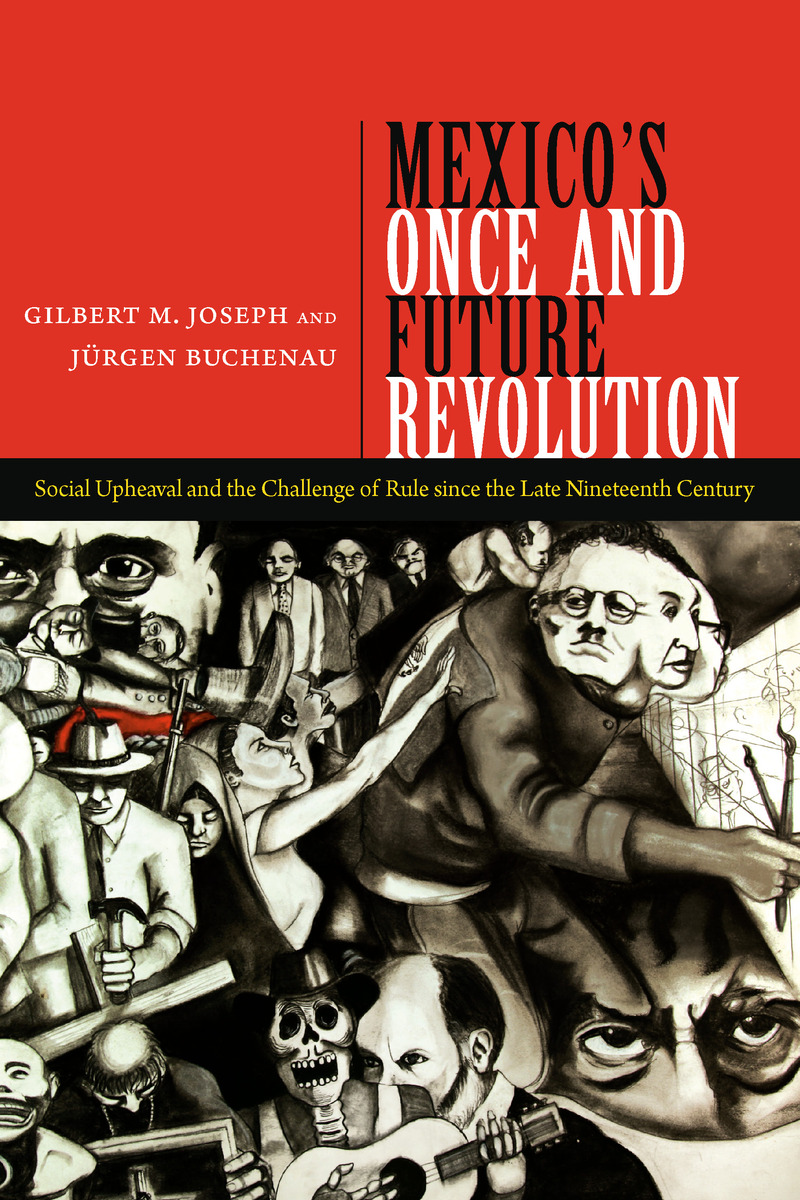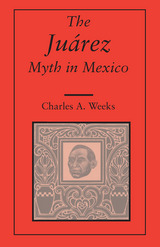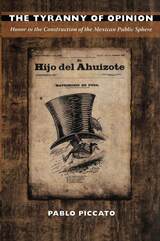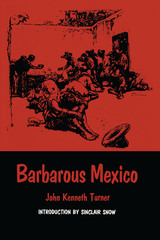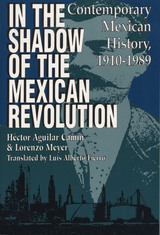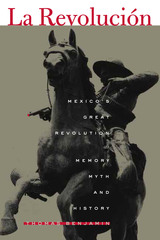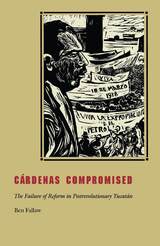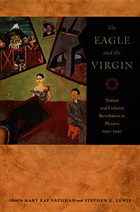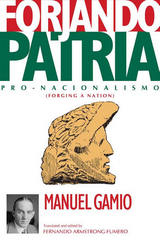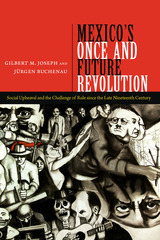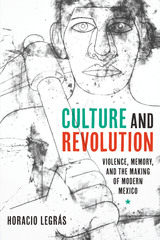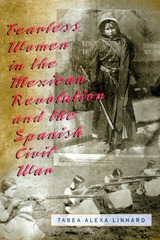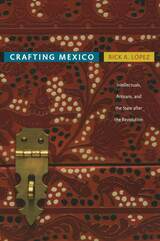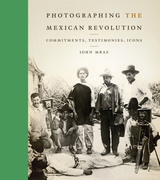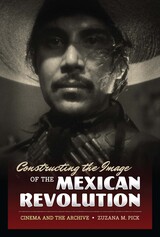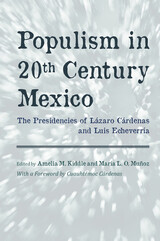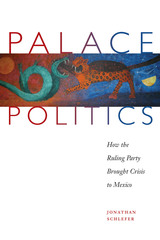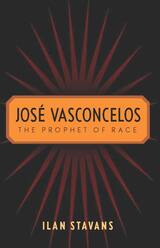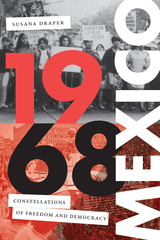"This comprehensive, highly readable history of the Mexican Revolution from its nineteenth century origins to the end of its institutionalization in 2000 folds acute analysis and the cogent scholarship of several generations of scholars into a fast-clipped narrative that sacrifices neither entertaining humor nor complexity. The first narrative of one of the twentieth century's most interesting and important political experiments is delightfully accessible to students and the general public alike."—Mary Kay Vaughan, coeditor of Sex in Revolution: Gender, Politics, and Power in Modern Mexico
"When and to what degree did the epic Revolution go astray? Although the authors, two of the most eminent scholars of revolutionary Mexico, are not shy in expressing their own opinions, this dossier allows readers from undergraduates to expert initiates to judge for themselves. Gilbert M. Joseph and Jürgen Buchenau have given us a crisply written, comparatively informed survey of Mexican political history embracing nearly 150 years of both change and continuity, from Porfirian modernization to the first successful challenge to ruling party hegemony in 2000. If one were to read a single sweeping treatment of modern Mexico, this book might well be at the top of the list."—Eric Van Young, University of California, San Diego
“Essential.”
-- J. M. Rosenthal Choice
"It is as synthesis that the text really succeeds, as a concise effort to bring a generation of scholarship on the Mexican Revolution into focus in a narrative that will satisfy the general reader and lower-division undergraduate students. Both constituencies will find this text a clearly written, up-to-date analysis of the processes that shaped the country's twentieth century. Mexico's Once and Future Revolution has no rival in the English language."
-- Alexander Dawson Hispanic American Historical Review
"Mexico's Once and Future Revolution is compact, informative and accessible."
-- Andrew Grant Wood The Americas
“Gilbert Joseph and Jürgen Buchenau have provided an eloquent and highly readable obituary for this long and complex period in Mexican history, but one that reveals above all how the revolution has been kept on life support only by academics themselves. . . . As Joseph and Buchenau’s brilliant and concise overview repeatedly demonstrates, the meaning of the revolution and how it was interpreted changed consistently throughout the 20th century – and arguably still is, if only among historians who continue struggling to interpret this momentous process.”
-- Gavin O’Toole Latin American Review of Books
“This book will likely be a regular staple in upper division undergraduate and graduate classes on Modern Mexico for some time to come. Furthermore, the bibliographical essay that follows the book is superb and, for aspiring and veteran students of the Mexican Revolution alike, worthy of the price of the book alone.”
-- Andrae Marak Canadian Journal of History
“Mexico’s Once and Future Revolution provides an excellent foundation upon which teachers can organize a course that addresses modem Mexico’s seminal event. While the authors appear to target a college audience, high school students in Advanced Placement and International Baccalaureate programs will find it accessible and instructive. Since its authors address social and cultural as well as political topics, it will support a wide range of courses and assignments. Its scope, clear narrative, and balance will serve the needs of students well.”
-- Daniel Lewis The History Teacher
“Mexico’s Once and Future Revolution is a readable, well-organized overview of the 1910 revolution, from its foundations to the presidential election of 2012 and the meaning of the revolution in the present. … [U]pper-division undergraduate classes on the Mexican Revolution will find the book accessible, graduate students will find it a fitting beginning point for their first-year reading on the topic, and established scholars will find it an organized review that they will want to keep on hand as a quick reference.”
-- Jason Dormady History: Reviews of New Books
“The book is an impressive act of synthesis, and an accessible blend of narrative and analysis. It will become a mainstay of introductory courses on Mexican history, and will also attract a general readership eager to learn about Mexico’s complicated revolutionary upheaval, the different ways historians have tried to understand it, and its long-lasting reverberations.”
-- Thomas Rath Journal of Latin American Studies
“In Mexico’s Once and Future Revolution, two of our most eminent interpreters of Mexico’s past have given voice to these diverse actors and produced an elegantly crafted synthesis of the republic’s modern period as it emerged before, during and after the revolutionary years of 1910–20. … Researchers and instructors alike will greatly benefit from the insightful and concise quality of Mexico’s Once and Future Revolution, a study that no doubt will become a critical touchstone for all students of Mexican history.”
-- Mark Overmyer-Velázquez Social History
"In a field comprised of theoretically rich and focused monographs, Mexico 's Once and Future Revolution stands out as a thoroughly researched, concise, and approachable survey of Mexico's most important modem developments. Specialists and non-specialists of the Mexican Revolution alike will benefit from reading this book, and it works particularly well as a text for college courses on modern Mexican History."
-- Brandon Morgan Journal of the North Carolina Association of Historians
"This book, written by two accomplished historians of modern Mexico, is a useful and engaging synthesis of the country’s modern political history. It is, in my experience, an effective book for undergraduate courses, presenting a useful periodization, good coverage of the most important topics, events, and actors, and an enticing bridge to further reading. Yet it is also more than a textbook.... This book, in other words, can work very well as a platform for courses on Mexican history in which students actively engage history, memory, and the present."
-- Pablo Piccato EIAL
"Mexico's Once and Future Revolution is a gracefully written, comprehensive synthesis for the classroom and general reader."
-- Mary Kay Vaughan Latin American Research Review
